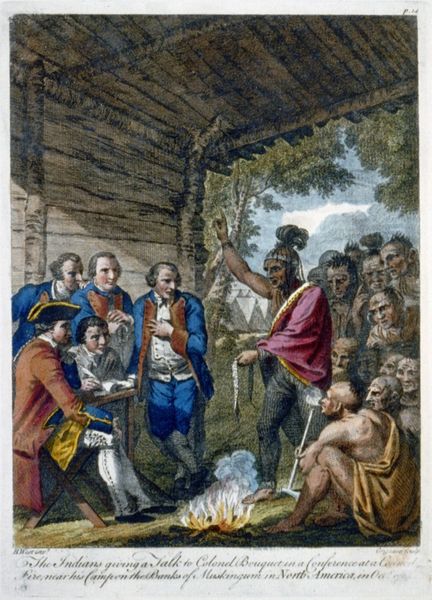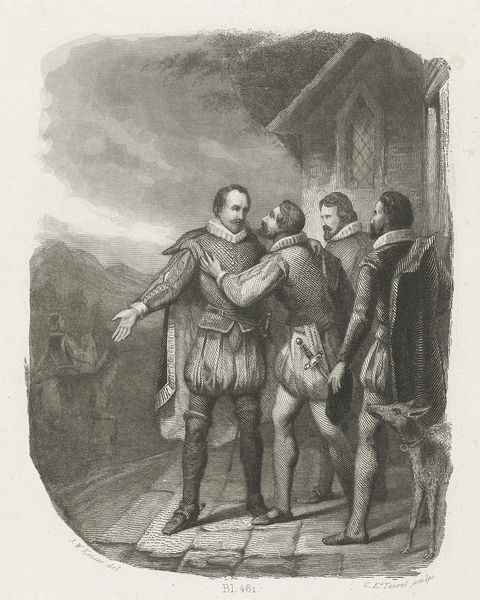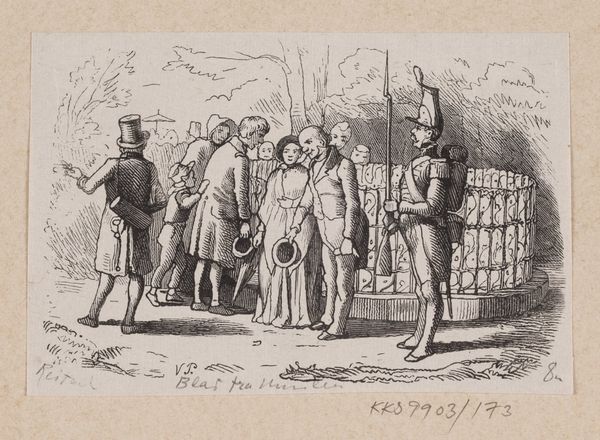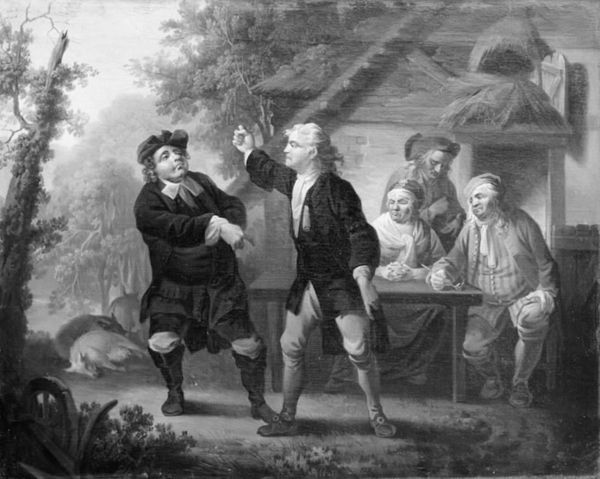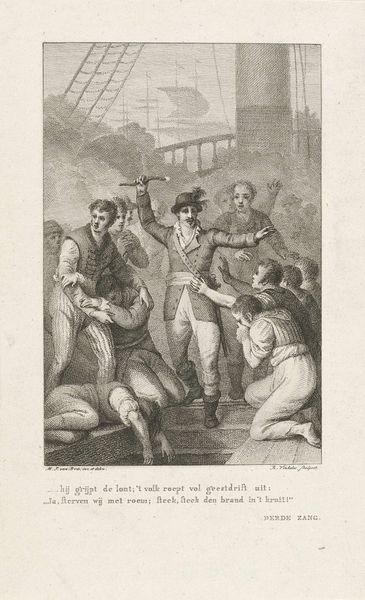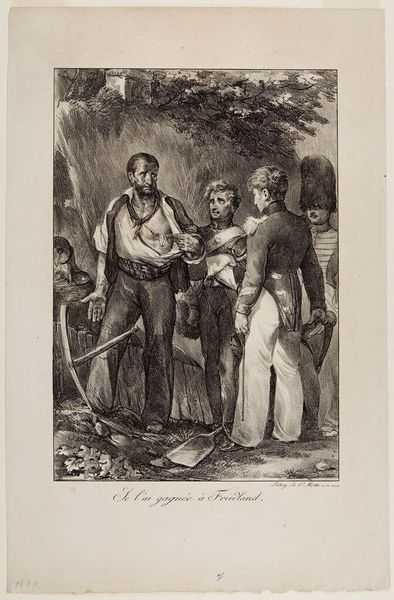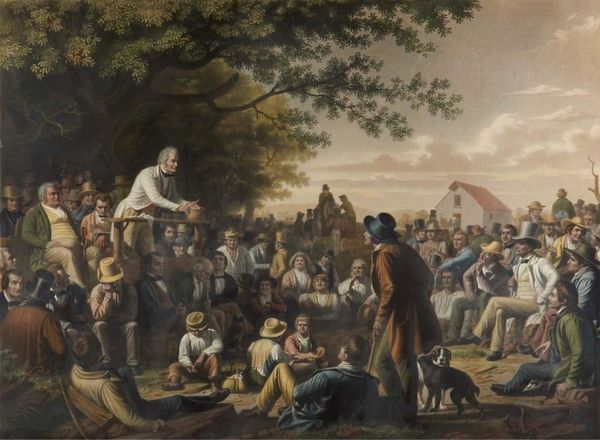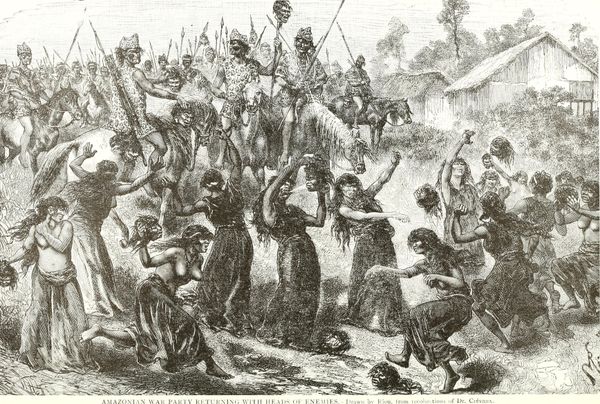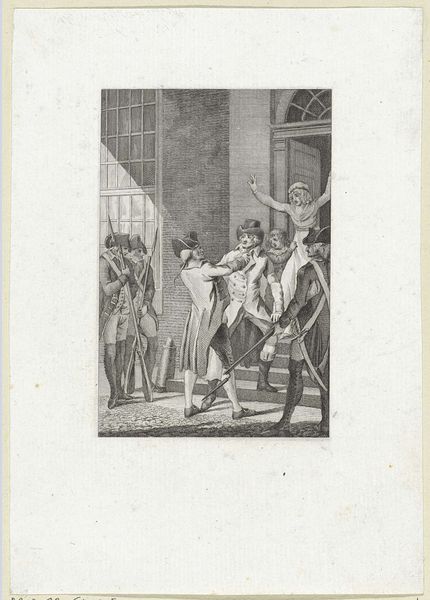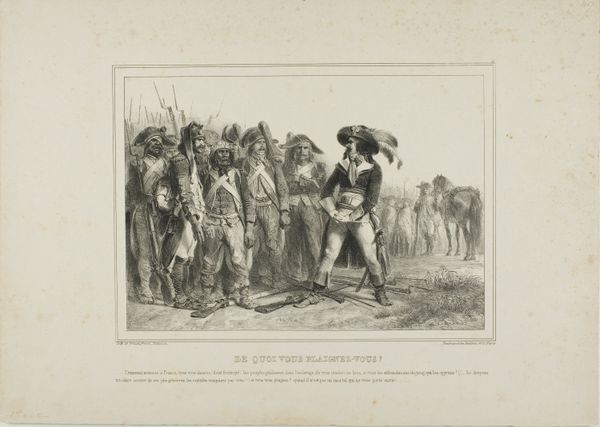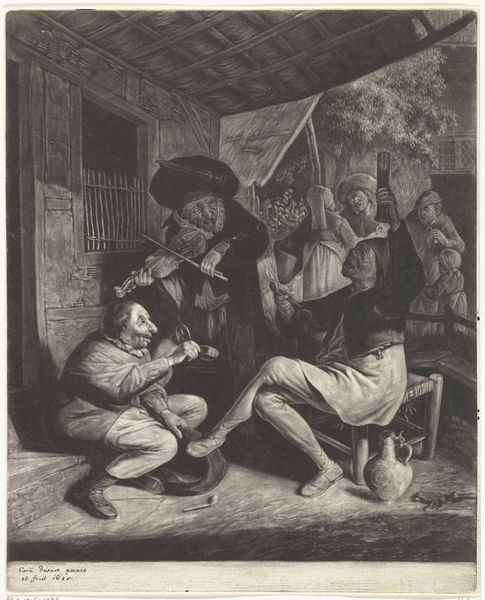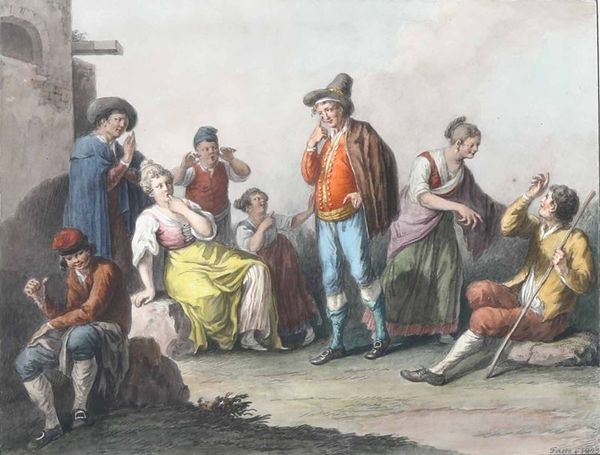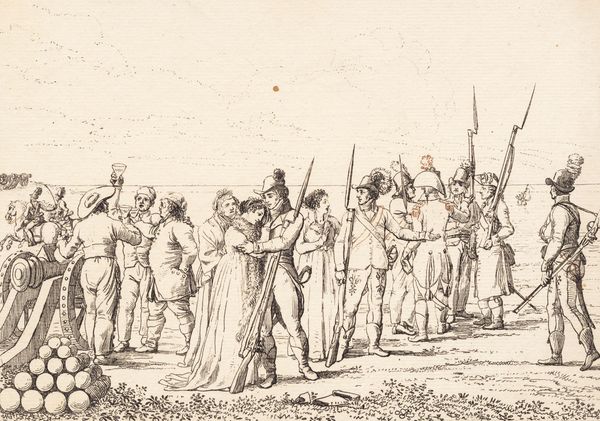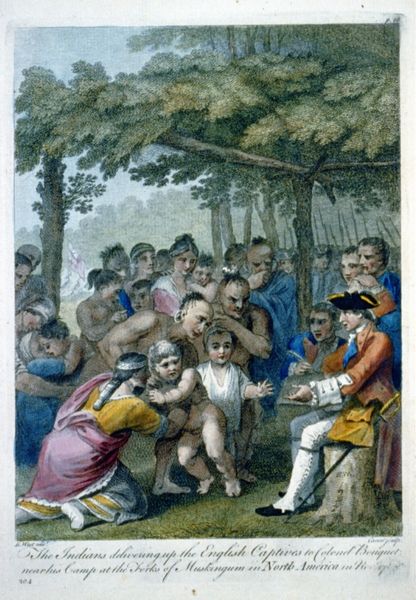
The Indians Giving a Talk to Colonel Bouquet in a conference at a Council Fire Near his Camp on the Banks of Muskingum in America, in October 1764, 1765 1765 - 1766
0:00
0:00
drawing
#
drawing
#
group-portraits
#
history-painting
#
northern-renaissance
#
academic-art
Copyright: Public Domain: Artvee
Editor: We're looking at "The Indians Giving a Talk to Colonel Bouquet," a drawing by Benjamin West from around 1765. It depicts this tense, colonial-era meeting. There's something about the staging that feels... constructed. What can you tell me about this? Curator: It's a prime example of history painting used as political messaging. West presents a specific vision of colonial encounters, doesn't he? How do you think the artist’s choice of this particular scene, and his rendering of it, shapes the viewer’s understanding of these events? Editor: Well, there's this air of civility despite the circumstances. Both sides seem so...posed. Almost theatrical. It definitely downplays any potential for conflict, perhaps to promote a narrative of peaceful negotiation? Curator: Exactly! This image serves a distinct purpose. Note the emphasis on diplomacy: The British are shown as reasonable and composed, listening attentively. How are the Indigenous people portrayed? And whose perspective do you think this artwork truly represents? Editor: The Indigenous people are presented in varied ways. Some are quite stoic, while others are listening to their speaker. Considering it was created by a European-descended artist, it feels like a dramatized outsider perspective attempting to justify colonial actions. The image almost seeks to legitimize the power dynamic by visually reinforcing the British presence and control. Curator: Precisely. Consider where this drawing might have been displayed and who its intended audience was. This context is crucial for understanding how such images influenced public opinion and shaped the narrative of colonialism. What would be lost, if we did not consider its function in that time and context? Editor: I see. If we looked at this piece without that lens, we might miss its ideological underpinnings, treating it merely as a factual document rather than a crafted representation of power. It’s about unpicking how art actively participated in the justification of historical events. Curator: And in understanding those mechanisms of justification, we begin to confront our own complicity in inherited narratives.
Comments
No comments
Be the first to comment and join the conversation on the ultimate creative platform.
